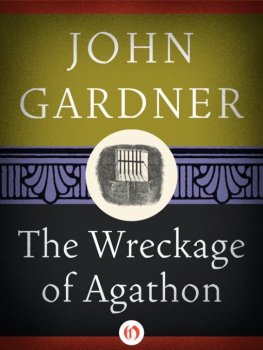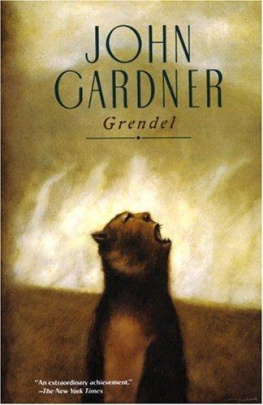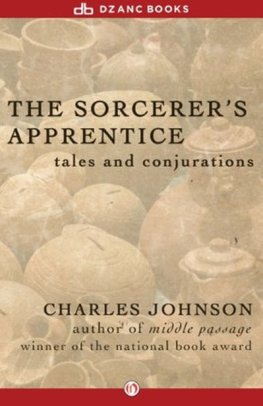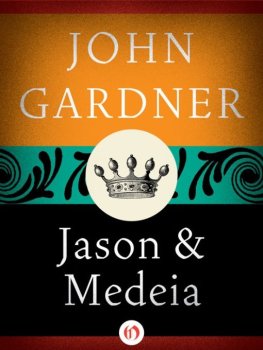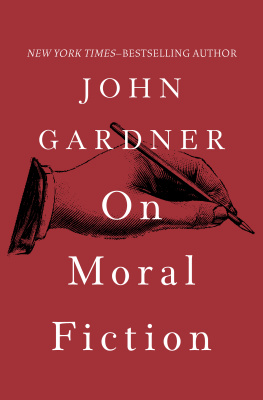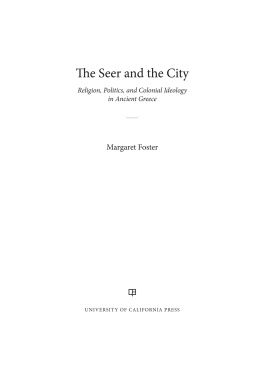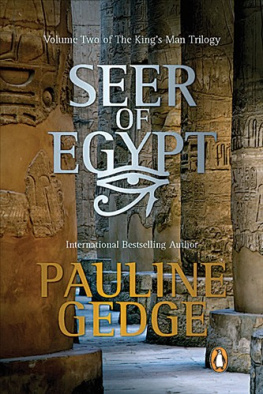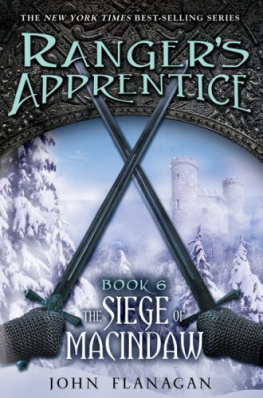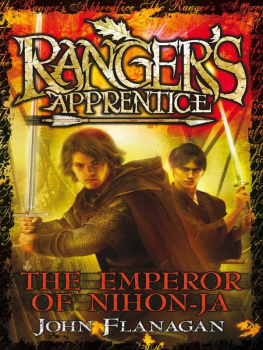John Gardner - The Wreckage of Agathon
Here you can read online John Gardner - The Wreckage of Agathon full text of the book (entire story) in english for free. Download pdf and epub, get meaning, cover and reviews about this ebook. year: 2010, publisher: Open Road Media, genre: Prose. Description of the work, (preface) as well as reviews are available. Best literature library LitArk.com created for fans of good reading and offers a wide selection of genres:
Romance novel
Science fiction
Adventure
Detective
Science
History
Home and family
Prose
Art
Politics
Computer
Non-fiction
Religion
Business
Children
Humor
Choose a favorite category and find really read worthwhile books. Enjoy immersion in the world of imagination, feel the emotions of the characters or learn something new for yourself, make an fascinating discovery.
- Book:The Wreckage of Agathon
- Author:
- Publisher:Open Road Media
- Genre:
- Year:2010
- Rating:4 / 5
- Favourites:Add to favourites
- Your mark:
- 80
- 1
- 2
- 3
- 4
- 5
The Wreckage of Agathon: summary, description and annotation
We offer to read an annotation, description, summary or preface (depends on what the author of the book "The Wreckage of Agathon" wrote himself). If you haven't found the necessary information about the book — write in the comments, we will try to find it.
The Wreckage of Agathon — read online for free the complete book (whole text) full work
Below is the text of the book, divided by pages. System saving the place of the last page read, allows you to conveniently read the book "The Wreckage of Agathon" online for free, without having to search again every time where you left off. Put a bookmark, and you can go to the page where you finished reading at any time.
Font size:
Interval:
Bookmark:
John Gardner
The Wreckage of Agathon
This book is dedicated to Duncan Luke
Therefore with the same necessity with which the stone falls to the earth, the hungry wolf buries its fangs in the flesh of its prey, without the possibility of the knowledge that it is itself the destroyed as well as the destroyer.
Schopenhauer, The World as Will and Idea1 Peeker:
What charge? cried Agathon, rolling his eyes up, clinging to his crutch, what charge? His eyebrows were like tangled hazel and hawthorn and oak moss, a blown-down forest of silver trunks and boughs. His nose was like an avalanche, his eyes were like two caves. What charge? he cried, and banged his crutch. Master, for the love of God, I said, but he gave me a look and roared again, What charge? A question obscenely presumptuous, for he was the foulest man alive, by any reasonable standard: a maker of suggestions to ugly fat old cleaning ladies, a midnight prowler in the most disgusting parts of town the alleys of the poor, the palace gardens who searched out visions of undressed maidens and coupling lovers, especially old ones, and lived, whenever his onion patch had nothing in it but burdocks and brambles, by foraging in the garbage tubs behind houses. (I have followed him for three years, though I speak of him with understandable detachment, and I know these things Im telling you for facts.) He was seated on a curb when they came to arrest him, cooling his great horny feet in the gutter, up to the ankles in the indeterminate principle. (His words, not mine.) I do not overprize sewage, he sometimes defended himself when children teased him. Its smooth and cool, but also smelly. Neither do I overprize kings. And he would cackle. Occasionally people would laugh and praise him. Usually they threw stones. Either way, he was happy. He was a fool, and I was ashamed of him. He was a troublemaker. When one of the stones they threw hit me and broke my head, he would say, Tut tut! Thats a nasty scratch! In the beginning I used to resolve sometimes that I would murder him, but he would reason with me and twist my mind and make me believe that I ought to be proud to be seen with him. In any case, I knew that if I murdered him I would have to go back with my mother.
The officers who had come to arrest him stared straight ahead, embarrassed to be seen laying hands on a famous and respected Seer, and annoyed at his stupid question. The old man went on asking it, fanatically, shaking with indignation and wagging his finger at them (he was standing now, lifting one foot gingerly from the cool black sewage to the blistering heat of the cobblestones): I insist that you tell me the charge! His tenacious hold on trivial fact, he told me, was the secret of his genius.
They gave him no answer, merely growled, Come along. The police would have given him a swat if they dared, and I would have agreed with them. But swatting a Seer brings bad luck, and besides, his eyes were red-rimmed and bloodshot, and his tongue was thick: his grasp on lower reality was uncertain. If they swatted him, hed fall down and splash them with sewage. Come along, they said.
Agathon obeyed, his rags flying like starlings. He hobbled between the two policemen like a man in pain, but I knew he was ecstatic, the center, once more, of all the gods and all mankinds attention. The huge stone horse that towers over the temple of Poseidon looked down across the city at him, full of love and awe. Even the dogs looking up at him from their noonday rest admired him, he thought. Magnificent soaring eagle! (It takes no genius to know what Agathons thinking, except in his trances. To know what he thinks in his trances you have to be crazy.) He hobbled with violent jerks of his crutch and twistings of his face, now and then loosing a horrendous fart, because of his living so long on onions, and so he proceeded with the two policemen down the winding street toward the great stone square of government buildings, the ephors Hall of Justice. I followed, a little behind them, bringing the jug. I kept by the walls and hurried from one buildings shadow to another. He stumbled once or twice and reeled, throwing out his arms like mangy wings. They caught him, wincing with distaste.
Lykourgos will hear of this! he squealed. All Time and Space will hear of this! And then, forgetting himself, he giggled. (I ducked and hid behind my arm, as I always did in these situations. There was nothing I could do with him.) Did I ever tell you my theory of Time and Space?
They ignored him.
Children, seeing the officers pass with Agathon, came running from their yards and houses to follow, joyfully mimicking first his limp, then the officers official strut (they walked toeing out, so he toed in, for symmetry), and they called out words of encouragement, now to Agathon, now to the police. A young Helot girl came running to mock him, though once hed saved her when she was chased by a cow. (I was there. I saw it all.) Bless you, bless you, cried Agathon, beaming like the sun. It was all his doing, this festival spirit, and maybe he was rightly pleased. Ten years ago, those who liked him would have been alarmed at seeing him dragged away to jail, and those he disgusted would perhaps have thrown thorns in the path of those filthy bare feet. Theyd had no philosophy, he said. No deep sense of the holiness of things. Hed converted them all. If hed wanted to, he used to tell me, he could have changed the weather. He had Influence. Bless you, bless you! he said to the sullen young officer on his right. Old women in black, with sunken mouths and eyes like open graves, watched him go past. Remember death! he whispered to the guard on his left. The guard stared forward.
(I give you, though I am only an apprentice in matters of this kind, a vision of the world peeled bare: Two officers, shiny and clean as needles, erect and elegant as unicorn horns, march down a sunlit swept-stone street, clumsily slowing their otherwise military pace for the old man between them. Their captive is a smallish, fat old clown with a halo of tangled silver hair ascending from his dome, a beard that shoots from his chin like lilacs, his robe more tattered and filth-bespattered than anarchy, his lips as endlessly in motion as the wind, saying words that play between cracked and crocked. Behind them come children whose laughter unifies Spartan law and those passing absurdities, us.)
Try as he might, he could not learn what charge it was theyd arrested him on. No matter, of course, as he used to say. It would reveal itself, in time, like everything else. Ah ha! he said, looking crafty, Ive got it! You suspect me of plotting an earthquake! He laughed till tears ran down his cheeks and he had to pause, hanging breathless from his crutch. You overestimate me, friends. Watch this! He roared, eyes wide and ominous:
Tremble, mountains! Shatter, air!
Shake Lykourgos from his chair!
Nothing happened. You see? he squealed triumphantly. But he paused again, head cocked, as if afraid he might have started something after all. But old Poseidon the earth-trembler was off somewhere among the sunburnt races, smelling the smoke of thighbones burning, haunches of rams and bulls. The mountains remained as they were, the air did not shatter. It was a holy moment. Impotent! he said gleefully. Im impotent! He glanced back at me sheepishly. Ive reminded him a thousand times that all he ever talks about is sex.
Keep walking, they said.
He walked.
I could have told them, if theyd asked, that the old man wasnt as drunk as he appeared, though he was, as usual, deeply, reverently drunk. He stood weaving, hands clasped, in the immense Hall of Justice, struggling to focus the Board of Ephors who gazed down on him. They were the greatest men in Sparta, perhaps the most powerful men in the world, and he knew them all, had served them often in his younger years (if anything at all that he tells me is true). They were greater than Kharilaus and Arkhelaus, the kings; greater even than the Lawgiver, Lykourgos. Though each of them, individually, was merely a man, subject to the usual misgivings of heart and inflammations of liver, as Agathon says, they were, together, more awesome than the oracle at Delphi. They could set aside the oracle as they set aside the whims of common mortals. They were the final masters in all things foreign and domestic, ecclesiastic and secular. But Agathon, being the gods fool, was unimpressed. Though their black robes and square red hats and shaved upper lips were all the same, their persons were various, some fat, some thin, some black-haired, some silvered. He pointed this out in a marveling voice to the guard on his right, and his face squeezed up into wrinkles as though he were closing his mind on the fact like a fist around a stone. I crouched in the doorway, cradling the old white jug in my arms and peering in like a beggar to see what would happen. Nothing did, for a long time. Agathon leaned on his crutch, hands clasped, looking up at the ephors or maybe at the iron trident that ascended almost to the ceiling behind them, and waited with his head cocked. Still nothing. He gave a jerk and I realized he was going to sleep. At last the Chairman stood up, behind the table, and addressed him. I couldnt make out a word he said, and I doubt that Agathon could either. The words were swallowed in echoes that rolled like thunder.
Font size:
Interval:
Bookmark:
Similar books «The Wreckage of Agathon»
Look at similar books to The Wreckage of Agathon. We have selected literature similar in name and meaning in the hope of providing readers with more options to find new, interesting, not yet read works.
Discussion, reviews of the book The Wreckage of Agathon and just readers' own opinions. Leave your comments, write what you think about the work, its meaning or the main characters. Specify what exactly you liked and what you didn't like, and why you think so.

